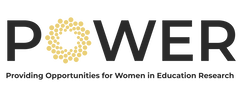By: Dr. Lori SkibbeIt is 4:45 pm and I realize that I haven’t written anything yet today. I am feeling tired, after a day filled with meetings. I prioritized the needs of my students and the pressing deadlines associated with my grants over my scholarly writing time. I still have some time left in my work day, but I know that it will be a tough slog to complete my writing goals. Sound familiar? In my experience, it’s not just about the amount of time that you spend on a task, but also when you choose to do each task and the breaks that you take along the way that will dictate how well you do your job. I thought that you might benefit from some lessons I’ve learned about time management during my career. Even after all these years, I still need occasional reminders about how to use my time most effectively.
It is important to create a daily schedule that fits your individual biological rhythms. When I tracked the times of day when I am most and least productive, I found that I am a morning person, who likes to tackle the tough intellectual tasks first thing in the day. As a result, I schedule my writing first thing in the day most days. Although times of greatest productivity can vary by person, a study of nearly 2 million students in high school found that state test scores were higher in math when students took their math class in the morning rather than the afternoon (Pope, 2016). Grade point averages were also higher for morning classes. Thus, it is not just the amount of time that we need to consider when planning our work day, but also placing our highest priority tasks during times when we are most productive. We must also recognize that we all need time to recharge. An academic job will take as much of your time as you will give it. Sometimes this tempts me to work long hours without taking time off or to work every day in a week. Research suggests that this is a mistake. The time we spend at work requires effort and energy, which needs to be periodically replenished, as our stores contain a finite supply (Meijman & Mulder, 1998). My energy begins to fade after two or three hours and, without some thoughtful preplanning, I can find myself looking for carbohydrates and caffeine, preferably while aimlessly searching the internet. However, when I rely on quick fixes, I actually get less done than when I manage my time in a way that allows me to take a real break from my work. My experiences resonate with work from Hunter and Wu (2016) who interviewed workers to figure out when, where, and how breaks should be taken during the work day. Most importantly, they found that breaks were critical to enhancing workplace productivity. Other things also stood out as being important: breaks should start early in the work day, be preferred activities, and occur frequently. For me, the best breaks involve physical and/or social activities, as these help me to reset my energy levels. I encourage you to think about your own biological rhythms and what they mean for your work productivity. Do you produce better output in the morning, afternoon, or evening? What is the optimal amount of time that you can work before you find your attention wandering? What kind of break reinvigorates you most? References Hunter, E. M. & Wu, C. (2016). Give me a better break: Choosing workday break activities to maximize resource recovery. Journal of Applied Psychology, 101, 302-311. Meijman, L. K. & Mulder, G. (1998). Psychological aspects of workload. In P. J. Drenth & H. Thierry (Eds.). Handbook of work and organizational psychology. Volume 2: Work psychology (pp. 5-33). Hove, England: Psychology Press. Pope, N. G. (2016). How the time of day affects productivity: Evidence from school studies. Review of Economics and Statistics, 98, 1-11.
0 Comments
Leave a Reply. |
Categories
All
Archives
November 2023
|

